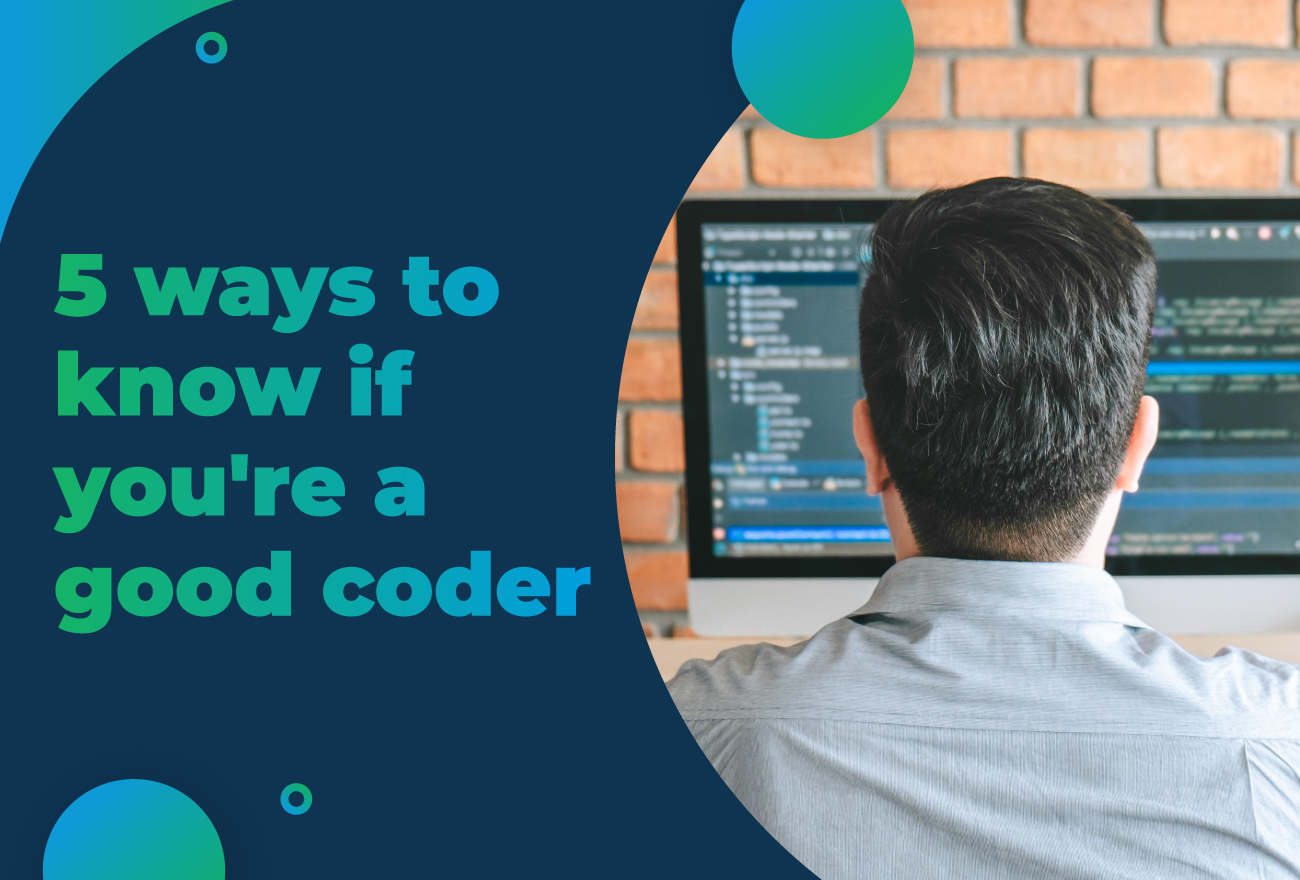By now, you’ve probably heard about all the exciting rewards that come with learning to code. Programming is a modern skill that fits into any career, enriches your existing skillset, and opens up new career opportunities with remote work, high pay, and incredible mobility. The rapidly digitising economy means that coding skills are not just applicable to the tech industry but are also increasingly paramount in other fields.
You might aspire to become a programmer yourself – but how do you know for sure if you would be any good at programming?
Well, there’s no exhaustive list of requirements to become a programmer. In fact, we believe very strongly that anyone can develop strong coding skills, no matter their age or background. But there are a few attributes and attitudes that we think would make learning programming and overcoming its challenges much easier.
Here are five qualities that show you would be a natural at coding.
00
1. Curiosity
If you have a natural curiosity for how stuff works and like to fix things through trial and error, then you’ve got at least one trait that’ll give you an advantage as you develop coding skills. Being curious and experimental is a must for programmers.
We might live in the age of StackOverflow, quick Google searches, and other resources you can consult at a click – but the ability to look at obstacles, figure out what causes them, and create innovative solutions on your own is invaluable. After all, what happens if you encounter a problem no one has ever solved before, or if you’re working on a project and can’t reveal anything about it?
This experimental attitude also means you’d be more likely to discover new technology stacks, programming languages, and techniques that make your job easier and your code more efficient. If you can show you’re proficient in several different programming languages, you’ll be able to take high-paying senior-level roles that garner plenty of benefits.
00
2. A quick grasp of structure and logic
At its core, programming is fundamentally logic-based. As any experienced programmer will tell you, the difference between a programme failing and it actually working can come down to a single missing semicolon or misspelt variable name. Every language has a particular set of rules for syntax, style, and structure – and the smallest error may result in code simply not running at all.
The ability to grasp structure and logic quickly might not be mandatory for beginner coders (practice is often far more powerful than talent), but it certainly does make using a language to solve difficult problems that much easier. It makes learning new tech stacks and languages a breeze. The more you know about programming, the more you can earn.
00
3. Objectivity
Being oversensitive or overprotective of your work can pose significant problems for the quality, security, and reliability of the code you write. Good coders don’t hang onto their code at all costs: they keep what’s useful and throw away code that no longer serves its function, even if it took weeks to write. Good coders know that there are always more efficient, better ways to do things, and so they are happy to throw out their own work and adopt another programmer’s code if it does the job better. Better code isn’t a slight against you; it’s an opportunity to learn and improve.
00
4. The right mindset and attitude
Just like a salesperson needs charisma, relatability, and people skills, so too do programmers need their own set of traits and values. Some of these ‘good coder’ values are:
Patience – A problem isn’t solved immediately. Developing your coding skills will take lots of trial, error, and time. A good coder has to be able to keep their cool and understand that rushed code is usually bad code.
Self-discipline – Coding is often an iterative process that goes through definite phases, such as planning, writing pseudo code, and creating programs in steps. Having the self-discipline to sit down and focus on individual tasks one at a time is an invaluable trait that you’ll need to cultivate to develop your coding skills.
An eye for detail – Code can be finicky and often requires you to pay attention so that you write code right. This value goes beyond just knowing the structure and rules of a programming language. It involves finding ways to make it better and more efficient.
Tenacity – Programs almost always fail before you can get them working – and even when code does run, bugs and errors are quite common. The trick is not to give up. Many people fear failure, but excellent programmers are excited by it.
00
5. An appetite for learning
New programming languages, technology stacks, and techniques are always emerging in the fast-evolving tech industry. A good programmer needs to remain aware of the latest coding practices and tools to ensure their code is lean, efficient, and up-to-date. People who take their self-education and upskilling seriously usually thrive at coding. As a developer, you want to continuously improve your coding skills via self-learning or online bootcamps.
00
——————-
If you want to start learning how to code and begin a journey towards your high-paying tech career, our bootcamps are the ideal starting point.
We believe that anyone can code, even if you’ve never tried coding before. Our bootcamps are designed for you to succeed, with personal expert code review and full career development support. HyperionDev is dedicated to helping you develop top coding skills so that you’re job-ready in 6 months or less.
Want to start learning the very basics, totally free of charge? Click here to check out our trial, where you can learn the essentials of data science, full stack web development, or software engineering.
00
Editor’s note: This post was originally published on 19 August 2020 and has been updated on 26 April 2022.


